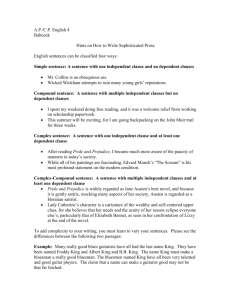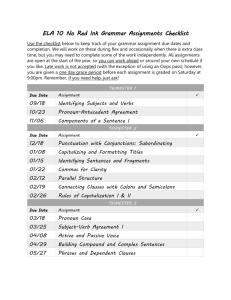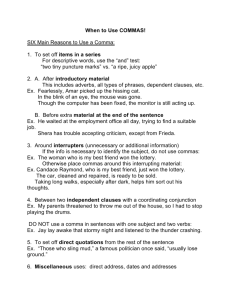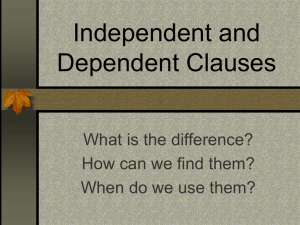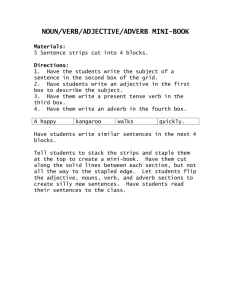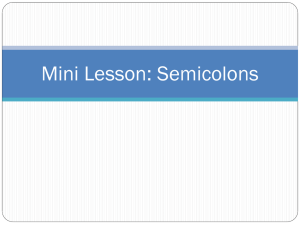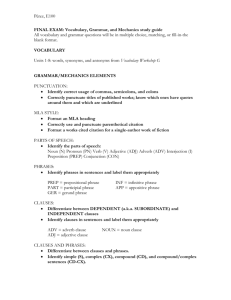Final Exam Study Guide
advertisement
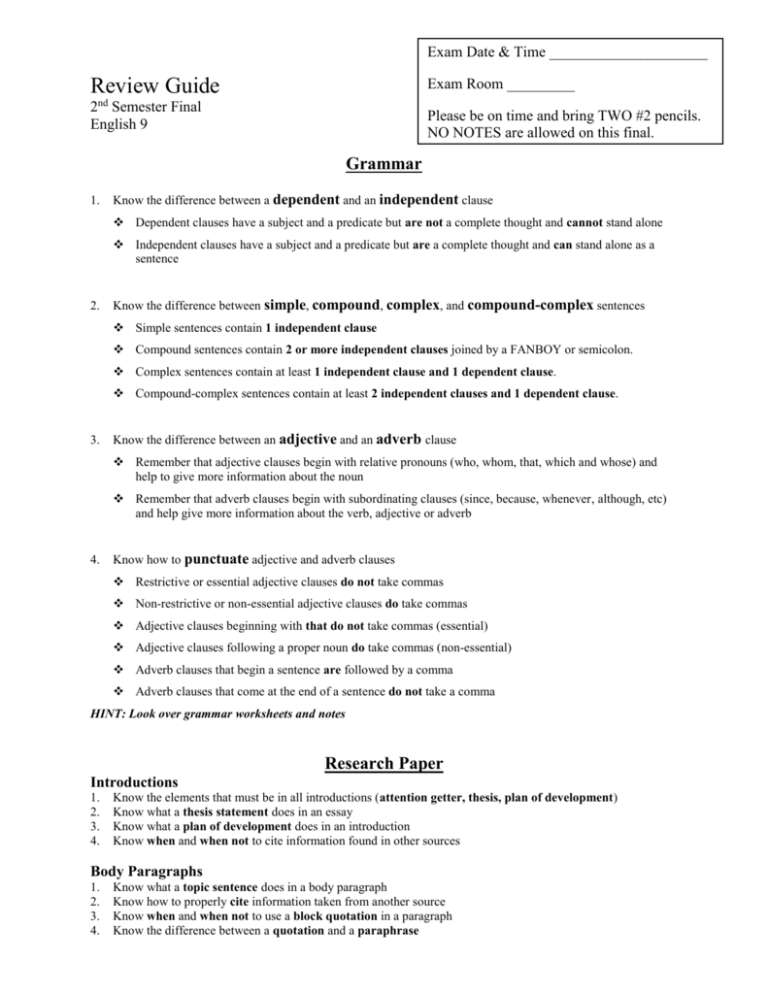
Exam Date & Time _____________________ Review Guide Exam Room _________ 2nd Semester Final English 9 Please be on time and bring TWO #2 pencils. NO NOTES are allowed on this final. Grammar 1. Know the difference between a dependent and an independent clause Dependent clauses have a subject and a predicate but are not a complete thought and cannot stand alone Independent clauses have a subject and a predicate but are a complete thought and can stand alone as a sentence 2. Know the difference between simple, compound, complex, and compound-complex sentences Simple sentences contain 1 independent clause Compound sentences contain 2 or more independent clauses joined by a FANBOY or semicolon. Complex sentences contain at least 1 independent clause and 1 dependent clause. Compound-complex sentences contain at least 2 independent clauses and 1 dependent clause. 3. Know the difference between an adjective and an adverb clause Remember that adjective clauses begin with relative pronouns (who, whom, that, which and whose) and help to give more information about the noun Remember that adverb clauses begin with subordinating clauses (since, because, whenever, although, etc) and help give more information about the verb, adjective or adverb 4. Know how to punctuate adjective and adverb clauses Restrictive or essential adjective clauses do not take commas Non-restrictive or non-essential adjective clauses do take commas Adjective clauses beginning with that do not take commas (essential) Adjective clauses following a proper noun do take commas (non-essential) Adverb clauses that begin a sentence are followed by a comma Adverb clauses that come at the end of a sentence do not take a comma HINT: Look over grammar worksheets and notes Research Paper Introductions 1. 2. 3. 4. Know the elements that must be in all introductions (attention getter, thesis, plan of development) Know what a thesis statement does in an essay Know what a plan of development does in an introduction Know when and when not to cite information found in other sources Body Paragraphs 1. 2. 3. 4. Know what a topic sentence does in a body paragraph Know how to properly cite information taken from another source Know when and when not to use a block quotation in a paragraph Know the difference between a quotation and a paraphrase Vocabulary You will be asked a series of multiple choice questions. Each question contains and underlined word. The only way to select the best answer is to know what the underlined word means. These are the vocabulary words studied this semester: atone beguiled endeavor heed reverence vice augment chide enmity illustrious scathe vile avert consort fickle inundate toil vindicate base covet fiend pernicious transgression virtue HINT: Look over your vocabulary packet; consider making flashcards Romeo and Juliet plot of the play. (There are true/false and multiple choices questions about what 1. You should know the basic happens in the play) 2. You should know who the following characters are and what contributions they make to the play: Prince Escalus Lord Montague Lord Capulet Romeo Juliet 3. Benvolio Mercutio Paris Tybalt Nurse You should know what the following literary devices do in the a play: Personification Foil Blank Verse Aside Simile Metaphor Friar Lawrence Friar John Balthsasar The apothecary Allusion Tragedy Foreshadowing Soliloquy HINT: Look over your Romeo and Juliet notes and handouts Dystopia You will be given a short story to read on the last day of class. During this time, you may make notes on the story regarding the questions below. The story will be collected and returned to you during the English 9 exam time so you can write your answers to the questions below. 1. 2. 3. Why is the setting a dystopia? What is the theme of this story? In other words, what is the author’s commentary or warning about our society? Explain how the protagonist’s thoughts and actions help emphasize the theme you listed above. HINT: Look over your Dystopia notes and rolesheets

